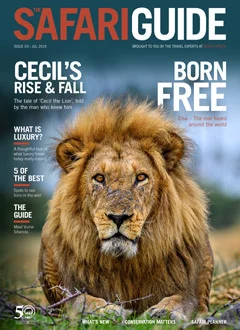Trip Planner
Madagascar
-
Country Overview
Country Overview
All the facts you need to know about the country itself.
Full Country Name Republic of Madagascar
Area 587,401 sq km
Population 24.57 million (UN 2015)
Capital and largest City Antananarivo
Borders Botswana, Lesotho, Mozambique, Namibia, Swaziland and Zimbabwe
Religion 52% follow animist beliefs; about 41% Christian & remainder Muslim
Time Zone Standard time is three hours in advance of Greenwich Mean Time
Languages The official languages are Malagasy (which is related to Indonesian) and French. Local dialects are also spoken. English is not widely spoken
Country Dialling Code +261Madagascar is the world’s fourth largest island. It is ringed by golden beaches and palm trees and has an interior that is resplendent in its variety, from grassy plateaus to volcanoes and opaque forests and natural reserves.
Since it split from the mainland 165 million years ago, many species that are unique to the island have evolved, including 3,000 indigenous species of butterfly. The Hauts Plateau divides the country geographically, climatically and culturally. The coastal strip east of this chain of high mountains is heavily forested, while the west is mainly savanna.
According to local legend, the Vazimba, a race of white pygmies, first inhabited the island. These people, if they existed, were displaced by successive waves of Polynesian migrants from the Malayo-Indonesian archipelago, from as early as the sixth century. In the ninth century, Madagascar was a major trading power in the western Indian Ocean. Moreover, ancient ruins indicate an extensive Arab presence on the island around that time. Bantu tribes from mainland Africa later settled on the west coast. The first Europeans arrived in the mid-17th century.
-
When to Travel
When to Travel
There is no right time to travel to Madagascar, just the right time for you!
THE CLIMATE IN Madagascar
Generally the climate of Madagascar is subtropical, with a hot and rainy season between November and April and a cooler dry season from May to October. However there is a big variation in climate depending on altitude and geographical position.
The west coast is drier than the east coast and the central highlands, while the far south and south west is a semi-desert region that experiences very little rainfall. The east coast receives the most rain and is hot and humid during the wet season, and also prone to cyclones between February and March.
When referring to the details of temperatures given below, please bear in mind that the average monthly maximum offers a guide to midday temperatures, while the minimum is a reflection of night time temperatures. The climate can vary from year to year and the following offers a general guide for your convenience.
Peak Season: July – August
Peak season offers warm, balmy days and cool, fresh nights.
Shoulder Seasons: April – June, September – December
Shoulder season offers warmer weather and much fewer people.
-
Visa Information
Visa Information
Here is the “need to know” information about visas for Madagascar.
DO I NEED A VISA TO TRAVEL TO Madagascar
At the time of writing, a visa for Madagascar is required for Australian Passport Holders.
WHAT IS THE COST OF A Madagascar VISA?
- Single Entry Visa (valid for 30 days): 20 Euro per person on an Australian Passport.
- In addition there is a new tourism tax (border levy) of 10 Euro per person.
- The visa can be obtained on arrival at the airport.
DON'T FORGET...
- It is important to have two blank pages side by side in your passport for the entry and exit stamps to be issued. If there is insufficient space, entry into the country may be denied.
- Visitors must also be in possession of onward travel documents and have sufficient funds for the duration of their stay.
Please double check this with Bench Africa or your travel agent as this may change at any time
-
Money Matters
Money Matters
What you need to know about your finances for your holiday in Madagascar.
CURRENCY
The unit of currency in Madagascar is the Malagasy Ariary (MGA).
YOU SHOULD KNOW...
- Currency can only be bought at banks and official bureau de change in hotels and at the airport in Antananarivo.
- The Ariary is a non-convertible currency and cannot be exchanged back into tradable currency. Therefore it is a good idea to exchange currency as required.
- Euros are the most practical and convenient currency to exchange into the local.
-
Families
Families
Is Madagascar the right choice for you and your family? Here’s what you need to know about travelling with children.
CONSIDERATIONS WHEN TRAVELLING WITH CHILDREN
- We would not recommend travelling to Madagascar with children under the age of 6 as it is not malaria-free.
- The infrastructure in Madagascar is fairly basic which often means long and bumpy drives which could be challenging for children. Having said this, it is possible to tailor-make itineraries to avoid these roads and still visit a national park, see the lemurs and have time on the beach.
- If you speak to one of our consultants they can design a holiday to suit the needs of you and your family.
- Dedicated facilities for children are not easy to come by but Malagasies are very fond of children and will do what they can to accommodate families.
ACCOMMODATION
- Many hotels provide double rooms with an extra bed for children.If you speak to one of our consultants they can design a holiday to suit the needs of you and your family.
-
Electricity
Electricity
Although electricity in Africa is a lot more reliable than it used to be, here’s what you need to be aware of:
Voltage & Frequency
The general voltage in Madagascar is 220 and the frequency is 50 Hz. As the sockets can vary a ‘Travellers Adaptor Set’ is recommended.
TOP TIP
Voltage sometimes fluctuates and whilst power cuts are rare, they are not unknown. It is useful to carry a torch.
-
Road Travel
Road Travel
Travelling by road in Africa may seem daunting to some so we have put together some information so that you know what you can expect:
Road Conditions
- Please note that road surfaces vary from tarmac, gravel, sand and occasionally vehicles may travel “off road”.
- Additionally, if visiting remote areas or National Parks and Reserves, the roads may well be rough, bumpy and in a poor condition and may be affected by adverse weather conditions.
Road Safety
Road travel in Africa can be a risky business. We cannot stress enough how important it is that you travel with a reputable ground operator, who has strictly enforced guidelines regarding speed and road safety. We have spent the best part of 50 years assessing the ground operators in each country that we sell. In booking through Bench you know that you will be the safest that you can be!
-
Tipping
Tipping
Tipping is a delicate and sensitive issue and many people ask us for tipping guidelines, here is all the information you should require.
TIPPING GUIDELINES
Tipping is usually considered customary in Africa although not as widespread as the United States or Europe. It is always at your discretion. If you feel that someone has gone the extra mile to make your stay more enjoyable, a tip would be considered a nice way of saying thank you.
To help you budget for your trip, the following is given as a guideline only (shown in US Dollars):
Driver (per person per full day): $5.00
Guide (per person per full day): $10.00
Hotel Porter (per bag): $1.00
Restaurant (per person per meal): $1.00
A la carte dining (% of the bill): 10% -
Useful Numbers
Useful Numbers
Here are some numbers you might need.
Consulate General of the Republic of Madagascar in Australia
Level 4 / 47 York Street Sydney NSW 2000, Australia
Tel: +61 2 9299 2290Australian High Commission, Mauritius
2nd Floor, Rogers House 5 President John Kennedy Street Port Louis, Mauritius
Tel: +230 2020 0160 -
Additional Costs
Additional Costs
There are some additional costs that you should be aware of.
Local Departure Tax
A security/departure tax has been implemented by the Civil Aviation of Madagascar and is payable by all passengers departing from airports in Madagascar.
The security/departure tax is payable in cash, in foreign currencies or Malagasy Ariary. The fee is USD 2.50 per person for domestic flights and USD 14.50 per person for international flights. These fees may change without notice.
-
Travel Advisory
Travel Advisory
Before travelling we recommend visiting the Smart Traveller website for the most up to date travel advice.
Smart Traveller advice on travel to Madagascar from Australia. Here you can find Madagascar’s most up to date COVID-19 health screening requirements for entry, exit and transit, which may include recent COVID-19 test results and/or vaccination requirements.
Subsequently we advise you to subscribe to Smartraveller for updates to stay informed if something changes.
-
COVID Travel Advisory
COVID Travel Advisory
Before booking your travel from Australia we recommend visiting the Smart Traveller website for the most up to date Global Health and Travel Advisory for Australians who are planning to travel internationally.
Smart Traveller’s Global Covid-19 Health and Travel Advisory.
Subsequently we advise you to subscribe to Smartraveller for updates to stay informed if something changes.
















